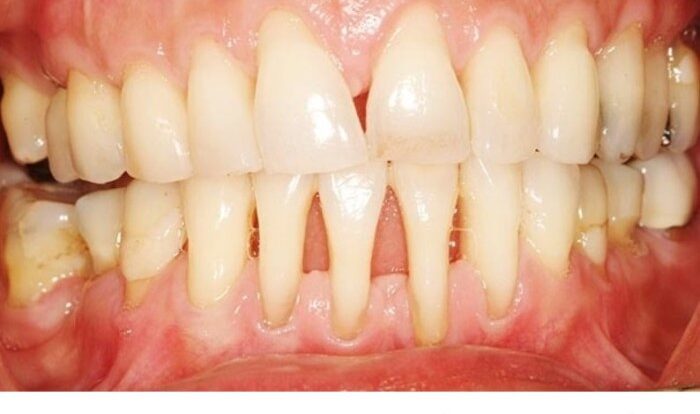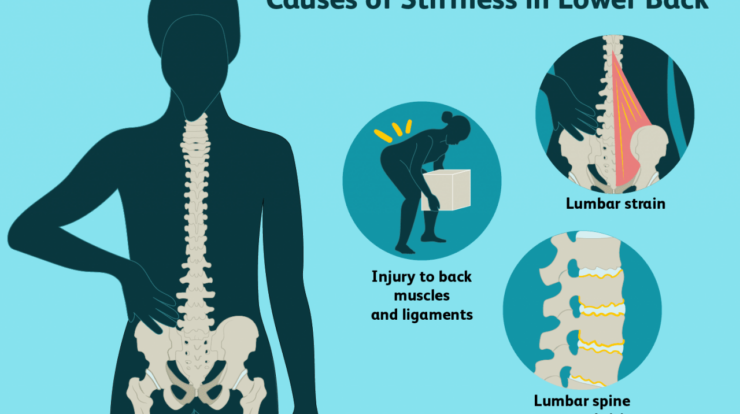
Suffering from gum disease but can’t make it to the dentist? Don’t fret! Discover how to cure gum disease without a dentist using effective natural remedies, home care techniques, and dietary changes. Dive into this comprehensive guide and take charge of your oral health today!
Gum disease, also known as periodontal disease, is a common problem that affects millions of people worldwide. While regular dental checkups and professional cleanings are crucial, there are several things you can do at home to prevent and even reverse gum disease.
Natural Remedies: How To Cure Gum Disease Without A Dentist
Natural remedies offer an alternative approach to treating gum disease, leveraging the antibacterial and anti-inflammatory properties of certain herbs and essential oils. These remedies may not be as effective as professional dental care, but they can provide temporary relief and support the body’s natural healing process.
Herbal Remedies
Various herbs have been traditionally used to combat gum disease due to their antimicrobial and anti-inflammatory properties. Clove oil, tea tree oil, and myrrh are notable examples.
- Clove oil:Contains eugenol, a powerful antibacterial and analgesic that can reduce inflammation and pain.
- Tea tree oil:Possesses antifungal and antibacterial properties that can help fight gum infections.
- Myrrh:An ancient remedy known for its antiseptic and astringent qualities, which can promote tissue healing and reduce bleeding.
DIY Mouthwashes and Pastes
Creating your own mouthwashes and pastes using natural ingredients can be a cost-effective and convenient way to incorporate these remedies into your oral hygiene routine.
If you’re looking to get rid of gum disease without having to go to the dentist, there are a few things you can do. You can try using a mouthwash that contains chlorhexidine, which is an antibacterial agent that can help to kill the bacteria that cause gum disease.
You can also try flossing more often, as this can help to remove plaque and bacteria from your teeth. If you have any loose teeth, you should try to get them fixed as soon as possible, as this can help to prevent further damage to your gums.
Here are some more tips on how to cure gum disease without a dentist .
- DIY Mouthwash:Combine 5-10 drops of clove oil or tea tree oil with a cup of warm water. Swish and spit for 30 seconds, twice daily.
- DIY Toothpaste:Mix 1/4 cup of baking soda with 2 tablespoons of coconut oil and 5-10 drops of clove oil or myrrh essential oil. Brush as usual.
Essential Oils, How to cure gum disease without a dentist
Essential oils are highly concentrated plant extracts that possess potent antibacterial and anti-inflammatory properties. However, their use for gum disease should be approached with caution due to potential side effects and interactions.
Did you know that it’s possible to cure gum disease without a dentist? It’s true! You can find out how to cure gum disease without a dentist with a few simple steps. Gum disease is a common problem, but it can be treated and even cured if you take the right steps.
- Benefits:Essential oils can effectively kill bacteria and reduce inflammation, providing temporary relief from gum pain and bleeding.
- Limitations:Essential oils can be harsh and may cause irritation or allergic reactions. Always dilute them with a carrier oil, such as coconut or jojoba oil, before applying them to the gums.
Home Care Techniques
Maintaining proper oral hygiene is crucial for preventing and managing gum disease. Implementing effective home care techniques can significantly reduce the risk of developing gum problems and improve overall gum health.
If you’re looking for ways to cure gum disease without a dentist, there are some natural remedies you can try. Some people have found success with using saltwater rinses or applying tea tree oil to the affected area. For more information on how to cure gum disease without a dentist, check out how to cure gum disease without a dentist .
Proper Brushing and Flossing
Regular brushing and flossing are the cornerstones of good oral hygiene. Brushing twice daily with a soft-bristled toothbrush and fluoride toothpaste helps remove plaque and bacteria from the teeth and gums. Flossing at least once a day is equally important as it removes plaque and food particles from between the teeth, where a toothbrush cannot reach.
Interdental Brushes and Water Flossers
Interdental brushes are small, cone-shaped brushes designed to clean the spaces between teeth where floss may not be effective. They are particularly useful for people with braces or wide gaps between their teeth. Water flossers use a pulsating stream of water to remove plaque and bacteria from the teeth and gums.
They are a gentle and effective alternative to traditional flossing, especially for people with sensitive gums or who find flossing difficult.
Tongue Scraping
The tongue is a major reservoir of bacteria, which can contribute to gum disease. Regular tongue scraping helps remove bacteria and improve gum health. Use a tongue scraper or the back of your toothbrush to gently scrape the surface of your tongue.
This helps reduce bad breath and promotes a healthier oral environment.
Dietary Considerations

The foods we eat significantly impact our overall health, including our oral health. Understanding the relationship between diet and gum disease can help us make informed choices that promote a healthy smile.
Sugary and acidic foods create an environment in the mouth that favors the growth of harmful bacteria, which can lead to plaque buildup, inflammation, and gum disease. Processed foods, sugary drinks, and refined carbohydrates contribute to this acidic environment, increasing the risk of gum problems.
Promote Gum Health
In contrast, a diet rich in certain foods can promote gum health and reduce the risk of gum disease:
- Leafy greens:Spinach, kale, and other leafy greens are excellent sources of vitamins and minerals that support gum health. They contain antioxidants that protect against inflammation and promote collagen production, essential for maintaining healthy gums.
- Fruits:Fruits like berries, apples, and oranges are rich in vitamins C and E, which are important for gum health. Vitamin C is a powerful antioxidant that helps protect against gum inflammation, while vitamin E supports the immune system.
- Yogurt:Yogurt is a good source of probiotics, beneficial bacteria that help maintain a healthy balance in the oral microbiome. Probiotics help crowd out harmful bacteria, reducing inflammation and improving gum health.
Probiotics and Prebiotics
Probiotics and prebiotics play a crucial role in maintaining a healthy oral microbiome. Probiotics are live microorganisms that provide health benefits when consumed, while prebiotics are non-digestible food ingredients that promote the growth of beneficial bacteria in the gut and mouth.
Including probiotics in your diet through fermented foods like yogurt, kefir, and sauerkraut can help balance the oral microbiome and reduce the risk of gum disease.
Gum disease is a common problem that can lead to serious health issues if left untreated. While it’s always best to see a dentist for professional treatment, there are some things you can do at home to help cure gum disease without a dentist.
Click here to learn more about how to cure gum disease without a dentist.
Alternative Therapies

Alternative therapies, such as acupuncture and laser therapy, have gained attention as potential treatments for gum disease. These therapies aim to stimulate the body’s natural healing processes and reduce inflammation, which may contribute to gum disease.
Acupuncture
Acupuncture involves inserting thin needles into specific points on the body. In the context of gum disease, acupuncture may help improve blood flow to the gums, reduce inflammation, and promote healing. Studies have shown that acupuncture may be effective in reducing gum bleeding and improving periodontal pocket depth, which are indicators of gum disease severity.
Laser Therapy
Laser therapy uses a low-level laser to deliver energy to the affected gum tissue. This energy stimulates cell growth, promotes tissue regeneration, and reduces inflammation. Laser therapy may be particularly beneficial for treating periodontitis, a more advanced form of gum disease that can lead to bone loss.
Studies have demonstrated that laser therapy can help reduce periodontal pocket depth, improve gum attachment, and reduce bleeding.
It’s important to note that while alternative therapies may provide some benefits for gum disease, they should not replace regular dental care. Conventional dental treatments, such as scaling and root planing, remain essential for removing plaque and tartar and preventing further gum damage.
Alternative therapies may complement conventional treatments by enhancing healing and reducing inflammation.
Prevention and Management

Gum disease is a serious condition that can lead to tooth loss. Fortunately, there are many things you can do to prevent and manage gum disease, including:
Symptoms of Gum Disease
Gum disease progresses through several stages, each with its own symptoms. The following table Artikels the symptoms of gum disease at different stages:
| Stage | Symptoms |
|---|---|
| Gingivitis | – Red, swollen, or bleeding gums
|
| Periodontitis | – Receding gums
|
| Advanced Periodontitis | – Tooth loss
|
Regular Dental Checkups and Professional Cleanings
Regular dental checkups and professional cleanings are essential for preventing and managing gum disease. During a dental checkup, your dentist will examine your teeth and gums for signs of gum disease. They will also clean your teeth and remove any plaque or tartar that may be present.
Professional cleanings can help to remove plaque and tartar from below the gum line, where you cannot reach with a toothbrush or floss.
Smoking Cessation and Stress Management
Smoking and stress can both contribute to gum disease. Smoking damages the gums and makes them more susceptible to infection. Stress can also lead to gum disease by weakening the immune system. If you are a smoker, quitting is one of the best things you can do for your oral health.
Managing stress can also help to improve your overall health and well-being, including your oral health.
Closing Notes
By following the tips and techniques Artikeld in this guide, you can effectively cure gum disease without a dentist and maintain a healthy, radiant smile. Remember, consistency and proper oral hygiene are key. Embrace these natural remedies and lifestyle changes to restore your gum health and enjoy a pain-free, confident smile!
Query Resolution
Can I cure gum disease permanently without a dentist?
While professional dental care is recommended, following the home remedies and lifestyle changes in this guide can significantly improve and even reverse gum disease.
How long does it take to cure gum disease naturally?
The duration varies depending on the severity of the gum disease. However, with consistent application of the remedies and lifestyle changes, you can expect noticeable improvements within a few weeks.
Is it safe to use essential oils for gum disease?
Yes, certain essential oils like clove oil and tea tree oil have antibacterial and anti-inflammatory properties. However, always dilute them with a carrier oil before applying them to your gums.





